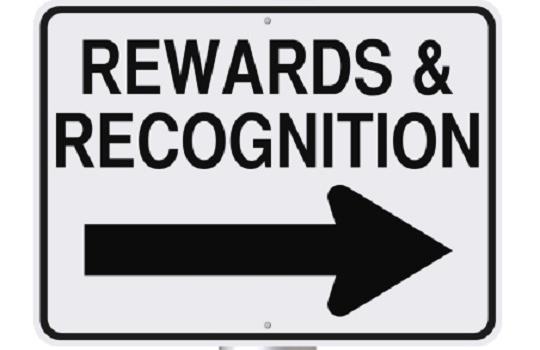Reward and recognition is an important communications tool to reinforce the actions and behaviours you most want to see your people repeat. Ensuring that your employees feel recognised and valued for their work and the contribution they make to the success of your business is not optional, or simply something nice to do when things are going well.
Unfortunately, many organisations are getting bogged down in traditional methods of recognising their staff, such as ‘Employee of the Month’ and ‘Sales Person of the Year’. This tactic may work in a few environments, but more often than not, this approach creates division and bad feeling among staff, and often leaves management struggling to balance out the awards across the year. What’s more, in many cases, employees themselves are uncomfortable about nominations of this nature, and would prefer more team-led recognition.
From my experience of working with businesses, here are a few insights into the best ways to reward staff:
Keep it personal
Work out what people want and tailor rewards to the individual. Some will value a £25 voucher to recognise good work, others a day off, or a chance to take their partner out for a meal. Some call centres I work with have introduced an area for play and relaxation, so that people can be rewarded with time out in a non-working environment, away from their desk and the phones.
Do your research
Be warned – if you don`t do your research, it can very easily misfire. For example, in one company, a team who had been working late nights on a major project were rewarded with the offer of a night out together, including a free bar. Actually, all they wanted to do was to have some time to spend with their families away from their colleagues after so many late nights at work.
What will always work
One size does not fit all. What works in a call centre might not fit in a dental practice. However, the simple and perhaps more obvious things will almost always apply across the board. Remembering to thank people, for example, will always be well received. Take a lead from the CEO of a West Midlands Building Society, who asked managers each month to provide the name of at least one member of their team who deserved recognition, and then made a point of thanking them personally over the following month.
Make sure that managers understand that part of their role is to recognise and value their team. They can do this in a variety of ways, including regular feedback, celebrating success as a team, and providing individuals with training, including opportunities to achieve external qualifications.
Small, personal approaches will work in most environments – whether it is a letter of thanks sent home, flowers, chocolates or vouchers for going the extra mile. Responding to positive feedback from customers is sensible and effective, but remember that only a proportion of your employees are likely to be customer facing, and everyone should have a chance to be rewarded for their efforts.
Reward and recognition needs to be more than just an HR policy that is rolled out among the masses to tick a box. Employees appreciate being recognised and thanked for their hard work and they will appreciate and believe this far more if they can see that there is a personal touch behind this. Do your research, refresh your policies and tailor your approach to your organisation and business goals.









